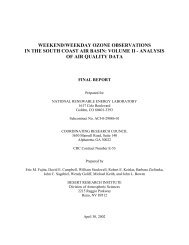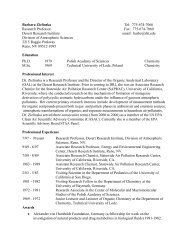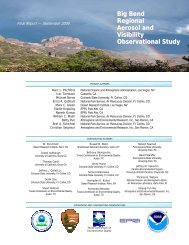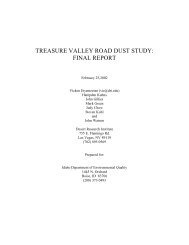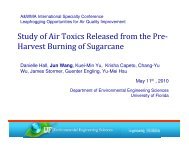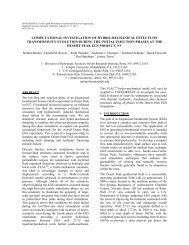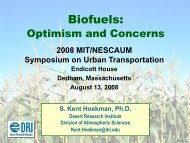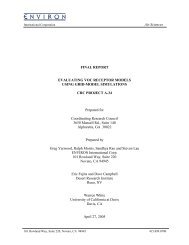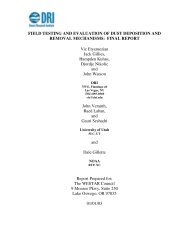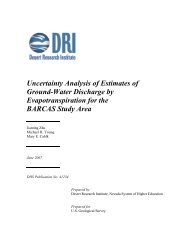Assessment of Conversion Technologies for Bioalcohol Fuel ...
Assessment of Conversion Technologies for Bioalcohol Fuel ...
Assessment of Conversion Technologies for Bioalcohol Fuel ...
You also want an ePaper? Increase the reach of your titles
YUMPU automatically turns print PDFs into web optimized ePapers that Google loves.
cooled then quenched and scrubbed. A portion <strong>of</strong> the syngas is burned in the pulsed<br />
heaters to supply the necessary heat, making the steam re<strong>for</strong>mer energy selfsufficient.<br />
The remaining syngas is available <strong>for</strong> conversion to liquid fuels via catalytic<br />
trans<strong>for</strong>mation.<br />
Development Status–TRI has demonstrated their gasification technology at the<br />
commercial scale in the pulp and paper industry, producing syngas from spent liquors<br />
common to this industry. The resulting syngas is used in these applications to produce<br />
electricity and/or process heat. Applications <strong>of</strong> the process to produce alcohol fuels<br />
using various agricultural and <strong>for</strong>estry-based feedstocks are being pursued. TRI has<br />
an operating test facility in Baltimore capable <strong>of</strong> processing 30 pounds per hour <strong>of</strong><br />
solid biomass feedstock.<br />
Future Plans–TRI and its partners are reportedly pursuing development <strong>of</strong> projects<br />
in several different countries involving applications <strong>of</strong> its technology <strong>for</strong> production <strong>of</strong><br />
fuels, including bioalcohols.<br />
Figure A7. TRI PulseEnhanced Technology<br />
ThermoChem Recovery Intl., all rights reserved<br />
76



